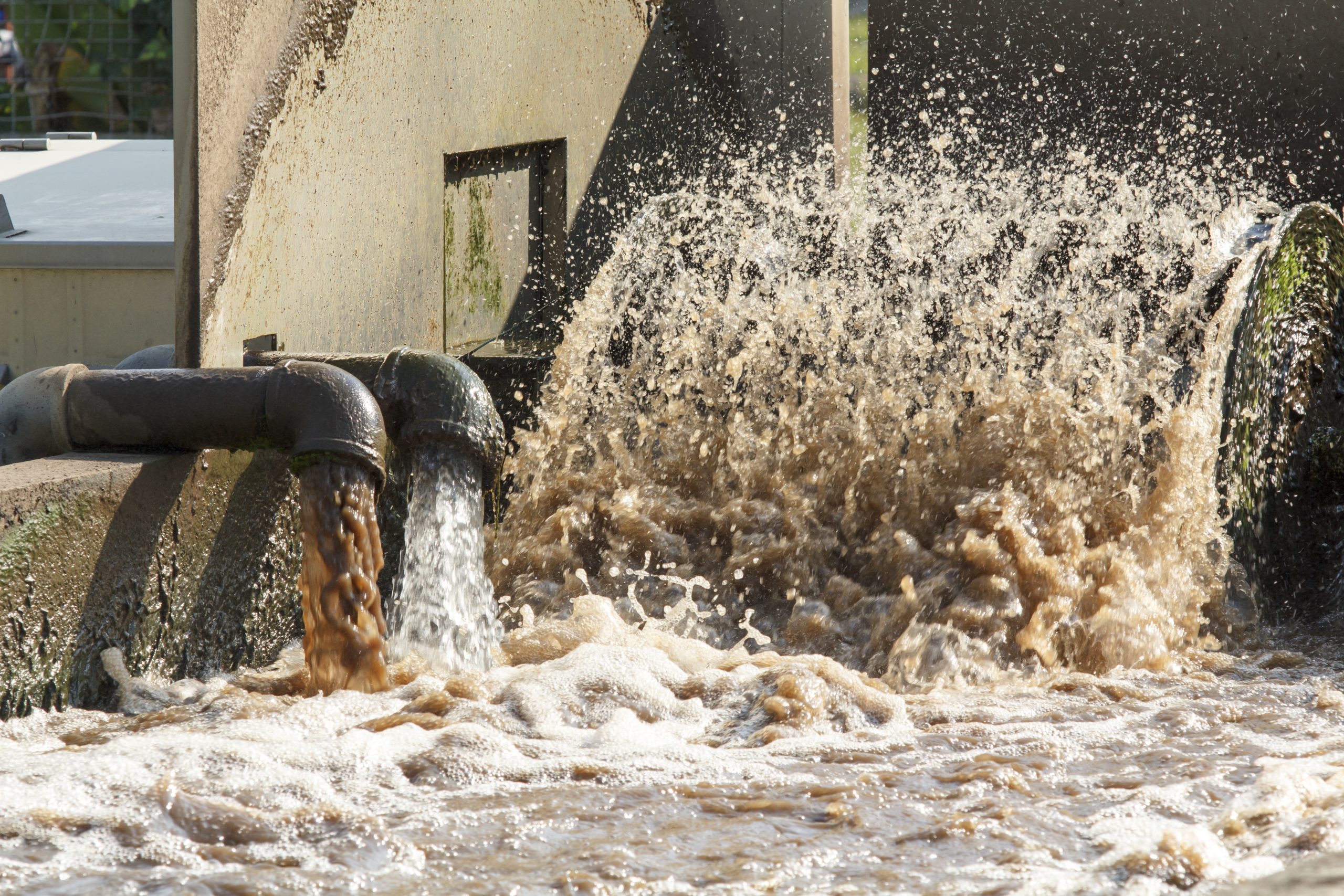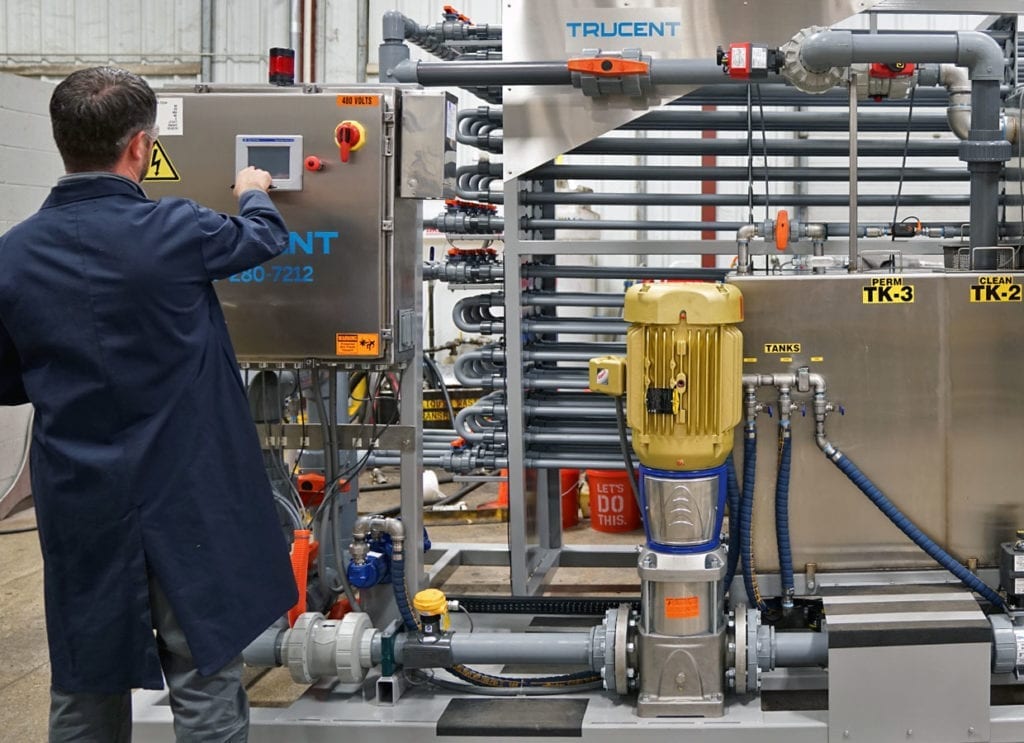Industrial Waste Water Treatment-- Tailored Solutions for Effective Wastewater Treatment
Industrial Waste Water Treatment-- Tailored Solutions for Effective Wastewater Treatment
Blog Article
The Duty of Hazardous Waste Water Treatment in Environmental Management
The efficient therapy of industrial wastewater is progressively acknowledged as a keystone of environmental management, offering to alleviate the destructive impacts of contaminants on marine ecosystems. As industries advance and expand, the requirement for durable wastewater administration solutions comes to be critical to guarantee compliance with ecological regulations and advertise lasting techniques. This demands a more detailed evaluation of the treatment refines utilized and their ramifications for both environmental health and resource recovery. Comprehending these dynamics elevates critical questions regarding the equilibrium between industrial development and environmental honesty, triggering further exploration of the paths ahead.
Value of Waste Water Therapy
The importance of wastewater treatment can not be overstated, as it plays a critical role in securing public health and wellness and the setting (Industrial Waste Water Treatment). Reliable wastewater treatment systems are vital for eliminating contaminants from commercial discharge, therefore protecting against dangerous materials from entering all-natural water bodies. This process lessens the danger of waterborne illness, which can occur from untreated wastewater, and safeguards area health and wellness
Furthermore, treated wastewater can be securely reused in numerous applications, such as irrigation and industrial processes, advertising sustainable water management techniques. By recycling water, industries can significantly reduce their freshwater usage, adding to resource conservation.
In enhancement to wellness advantages, wastewater treatment is crucial for preserving water ecological communities. Toxins in untreated wastewater can cause the destruction of water quality, harming aquatic life and interrupting eco-friendly balances. By treating wastewater before discharge, industries aid keep the honesty of regional communities and advertise biodiversity.
Furthermore, governing conformity is an essential aspect of wastewater administration. Complying with well-known ecological standards not just prevents lawful consequences but additionally improves a company's credibility as a liable corporate person. Essentially, reliable wastewater therapy is vital for guarding public health and wellness, protecting the setting, and promoting sustainable commercial methods.

Resources of Industrial Waste Water
Industrial wastewater stems from a selection of resources, each adding to the intricacy of therapy processes. Mainly, these sources consist of producing facilities, refineries, and processing plants, which create effluents as a byproduct of their operations. Industries such as textiles, pharmaceuticals, food and beverage, and petrochemicals produce significant quantities of wastewater, usually packed with contaminants consisting of hefty metals, natural substances, and nutrients.
In enhancement to manufacturing, farming activities add to industrial wastewater via overflow and effluent from animals procedures and plant handling. The meat and milk markets, particularly, are recognized for releasing high levels of biochemical oxygen demand (FIGURE) and microorganisms.
Additionally, mining and mineral processing activities produce wastewater including put on hold solids and hazardous chemicals. Power generation plants, specifically those utilizing nonrenewable fuel sources, also add wastewater via cooling down systems and chemical cleaning procedures.
Each of these sources presents distinct challenges pertaining to the make-up and quantity of wastewater generated, necessitating tailored treatment remedies to reduce their ecological impact. Recognizing additional resources the diverse beginnings of commercial wastewater is essential for creating reliable management approaches aimed at shielding water resources and promoting lasting commercial practices.
Treatment Procedures and Technologies
Effective treatment procedures and innovations are crucial for managing commercial wastewater and mitigating its ecological effect. Numerous methods are employed to remove impurities, adjust to different wastewater features, and abide by regulative requirements.
Physical therapy procedures, such as sedimentation and filtration, help with the removal of suspended solids. These techniques are typically used as preliminary actions to lower the tons on subsequent treatment phases. Chemical therapy, including flocculation, neutralization, and coagulation, addresses liquified pollutants by modifying their chemical buildings, making them simpler to divide from water.
Organic treatment innovations, such as triggered sludge systems and biofilters, make use of microbes to break down raw material and nutrients. These methods are especially reliable for eco-friendly waste streams, promoting the all-natural decomposition process. Advanced treatment innovations, such as membrane purification and progressed oxidation processes, offer enhanced removal efficiencies for challenging pollutants, consisting of heavy steels and relentless natural substances.
Each of these treatment processes can be set up in various mixes to create customized options that fulfill particular commercial needs. The option of modern technology depends on elements such as the kind of wastewater, desired treatment end results, and financial considerations, making certain that sectors can run sustainably while reducing their ecological footprint.
Ecological Benefits
Carrying out durable wastewater treatment refines not just makes certain compliance with regulative criteria but likewise generates substantial environmental advantages. Reliable treatment of industrial wastewater lowers the discharge of damaging contaminants right into all-natural water bodies, consequently protecting marine environments. By getting rid of poisonous compounds, hefty metals, and virus, these procedures aid keep biodiversity and advertise much healthier communities.
Additionally, treated wastewater can be repurposed for different applications, consisting of irrigation and commercial procedures, lessening the need for freshwater resources. This reuse not only preserves water however additionally reduces the stress on regional water products, which is specifically vital in water-scarce regions.
Additionally, effective wastewater treatment reduces the risk of soil and groundwater contamination, making certain the integrity of local environments. Industrial Waste Water Treatment. By stopping the seepage of harmful substances, industries contribute to the overall health of bordering areas and you could try here environments, improving public depend on and cultivating sustainable commercial practices
Regulative Structure and Conformity
A detailed regulatory structure governs the therapy of commercial wastewater, guaranteeing that industries abide by rigid conformity requirements. Different national and regional policies, such as the Tidy Water Act in the United States, stated limits on the discharge of pollutants into water bodies. These laws are developed to shield marine ecosystems and public health and wellness by mandating that sectors execute appropriate therapy technologies.
Compliance with these laws usually involves getting authorizations, conducting routine tracking, and reporting discharge degrees to regulative authorities. Failure to comply can result in significant penalties, including fines and functional constraints, thereby More hints incentivizing sectors to adopt ideal methods in wastewater management.
Along with governmental laws, lots of sectors likewise abide by voluntary criteria and accreditations, such as ISO 14001, which advertise lasting ecological management methods. Stakeholders are progressively advocating for boosted openness and liability in wastewater monitoring, pushing for more stringent enforcement and more rigorous coverage requirements.
Inevitably, a durable regulatory structure not just serves to reduce ecological threats however likewise cultivates a culture of sustainability within the industrial field, urging constant renovation in wastewater therapy processes.
Final Thought

The reliable therapy of industrial wastewater is significantly acknowledged as a cornerstone of ecological defense, offering to alleviate the detrimental influences of contaminants on marine ecological communities. Efficient wastewater therapy systems are vital for removing impurities from industrial discharge, therefore stopping harmful compounds from entering natural water bodies.Industrial wastewater stems from a range of resources, each contributing to the intricacy of therapy processes. Efficient therapy of industrial wastewater lowers the discharge of hazardous toxins into natural water bodies, therefore safeguarding marine ecosystems.In final thought, commercial wastewater therapy is vital for guarding environmental stability and advertising lasting water management.
Report this page